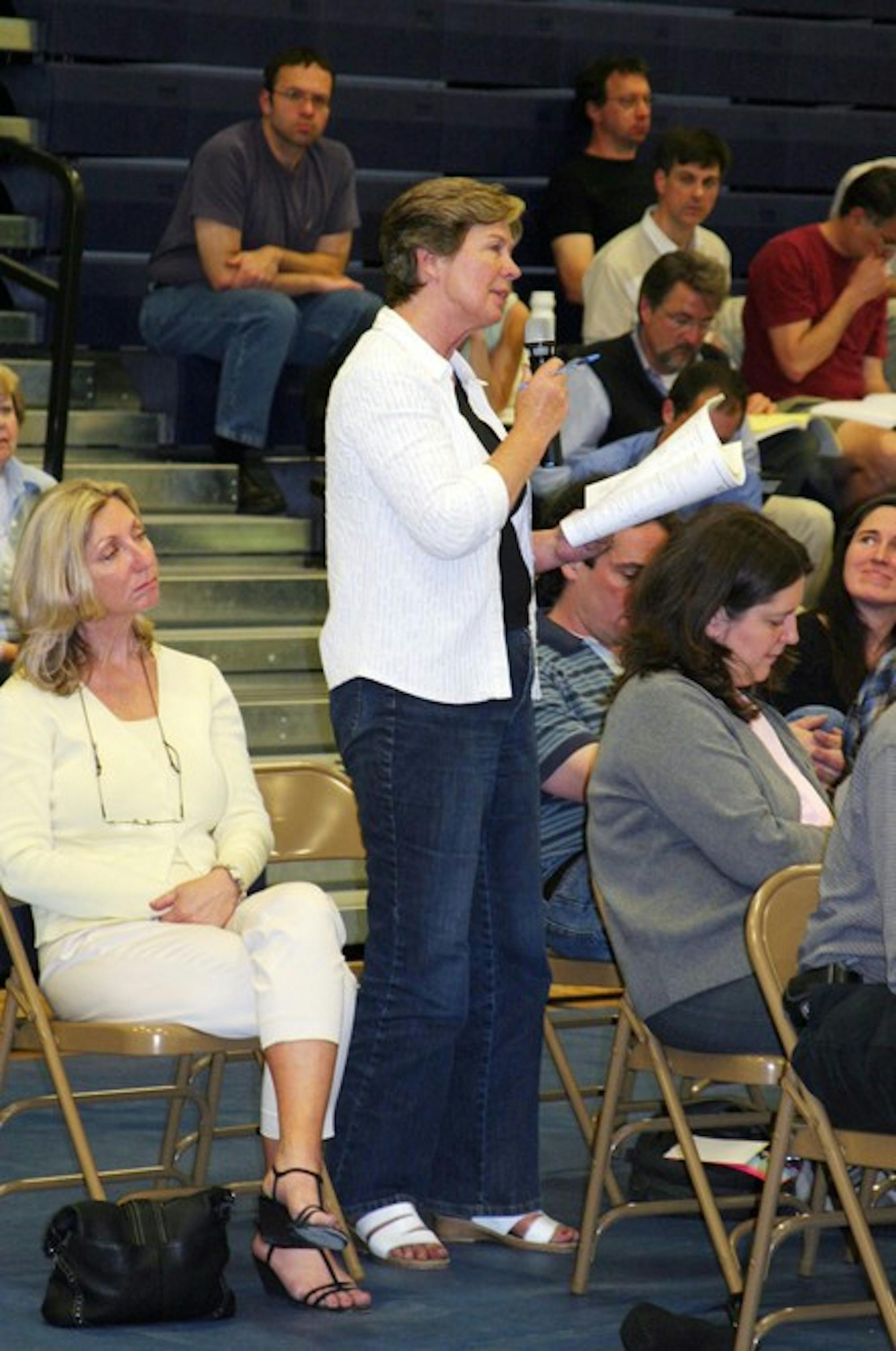Brian Walsh, chairman of the Board of Selectmen, a five-person committee that oversees town affairs, prompted the decision to table the legislation, which was the last item on the meeting's agenda.
"This article is not valid," Walsh said. "It is our recommendation that the town vote to table this article."
Immediately after Walsh's statement, a resident of Hanover proposed the suggested tabling of the legislation which passed by a margin of 40 votes -- 73 in favor to 33 against.
Hanover residents granted permission to speak on the legislation to Stuart Cooper, the sponsor of the legislation and a Manchester resident.
"We are simply urging our law enforcement officers for this to be a low-level priority," he said.
Before the meeting, Cooper handed residents two sheets of paper: one was a memorandum from an attorney arguing the legality of the legislation and the other a document with bullet-point arguments in support of the article.
Town manager Julia Griffin said that a possible amendment to the article could have changed the wording to eliminate any call to action within the bill, replacing it with merely a statement of support for the state legislature's medicinal marijuana bill that failed at the end of March by a margin of nine votes.
"I was expecting nearly an hour of debate," Griffin said after the meeting. "I was waiting for somebody to jump up and make a motion to amend the article."
After the town meeting, Chairman Walsh said that the legislation, as it stood, put the police department in an awkward position. Police officers have taken an oath to uphold state law.
Hilda Sokol, a former six-year state legislator who once taught at the Dartmouth Medical School, said that she wished there would have been more debate on the article during the town meeting.
"I wish that we could have had a motion to amend this," she said. "I just wasn't fast enough to jump up and that's really a shame."
The entire town meeting lasted two-and-a-half hours, with 60 percent of the time allocated to discussion of the budget.
Hanover plans to allocate $90,000 to replace the traffic lights at the intersection of South Main Street and Lebanon Street. Currently, only metal reinforcements at the base of the polls prevent the lights from falling into the intersection, and the lights use outdated technology, according to Griffin. The new light system will use energy-efficient LEDs.
The town also passed an article that expresses Hanover's support for action against climate change, but does not mandate any action on behalf of the town.
"We will not make any serious impact on carbon emissions or global warming unless the federal government takes concerted action," said John Trummel, the chair of the Sierra Club's Upper Valley division who spoke in support of the bill.
Residents approved the town's $18,773,242 operating budget with nearly unanimous consent with four of the more than 100 individuals present voting against it.
A greater demand for funds in Hanover's budget fueled a six percent increase in Hanover's overall tax bill, according to Selectman Peter Christie.
He said that this increase is unavoidable due to the rising price of oil and un-funded mandates "handed down" from the state and federal government. State retirement fund mandated increases added two percent to the tax rate -- one-third of the six percent general fund increase.
"The macro-pressures of the rise of oil prices make it very difficult to limit tax increases to the rate of inflation," Christie said.
Despite rising costs of health care nationwide, the town reduced its health insurance costs by $30,000, creating savings which will go into Hanover's reserve fund, which is used for problems such as flood damage.




